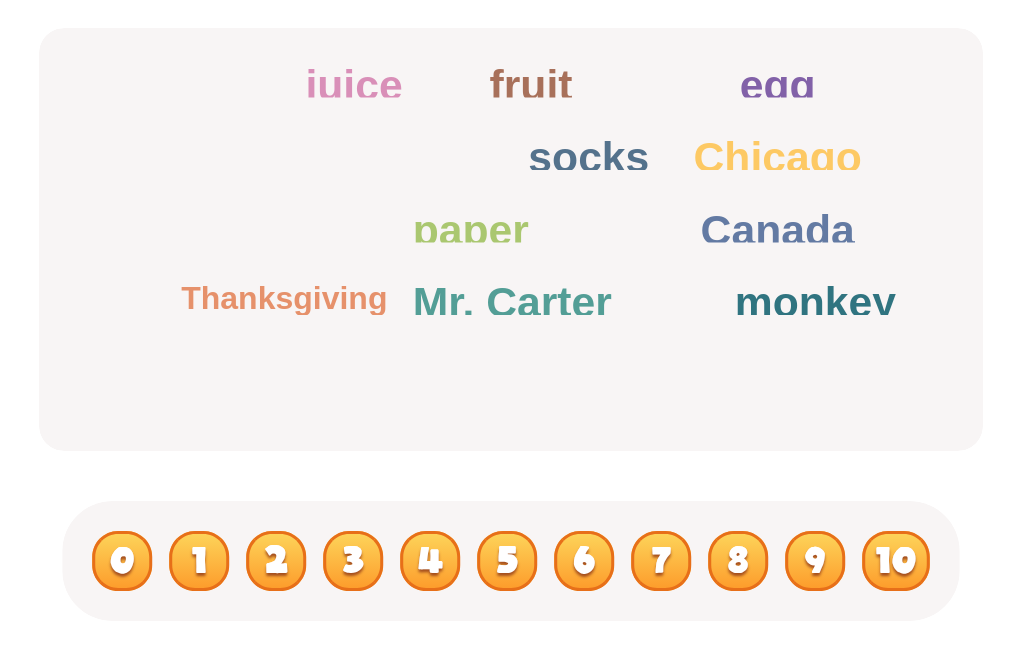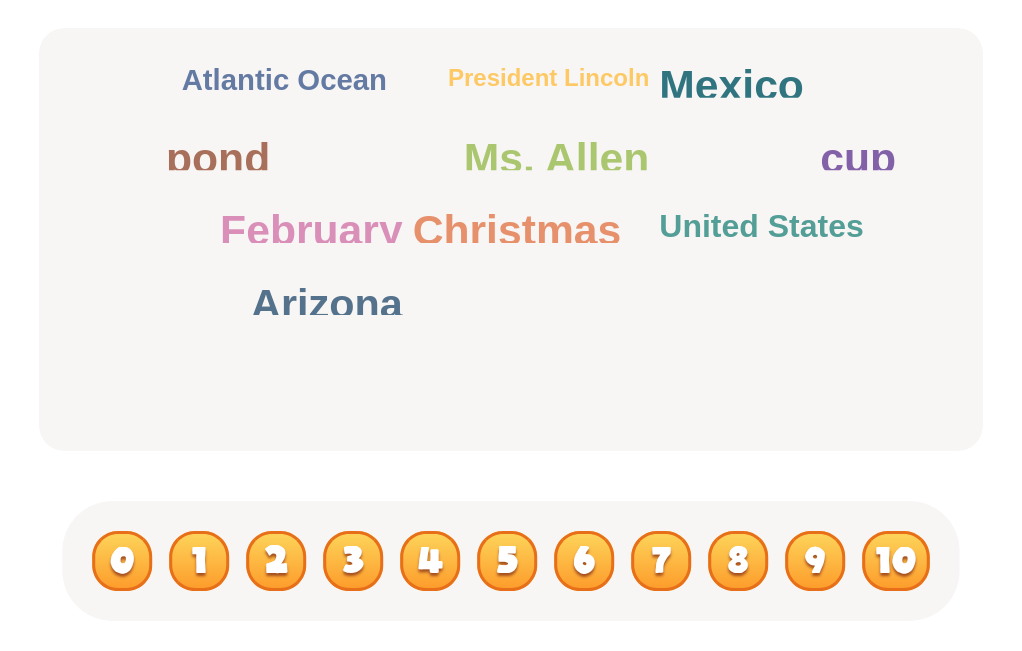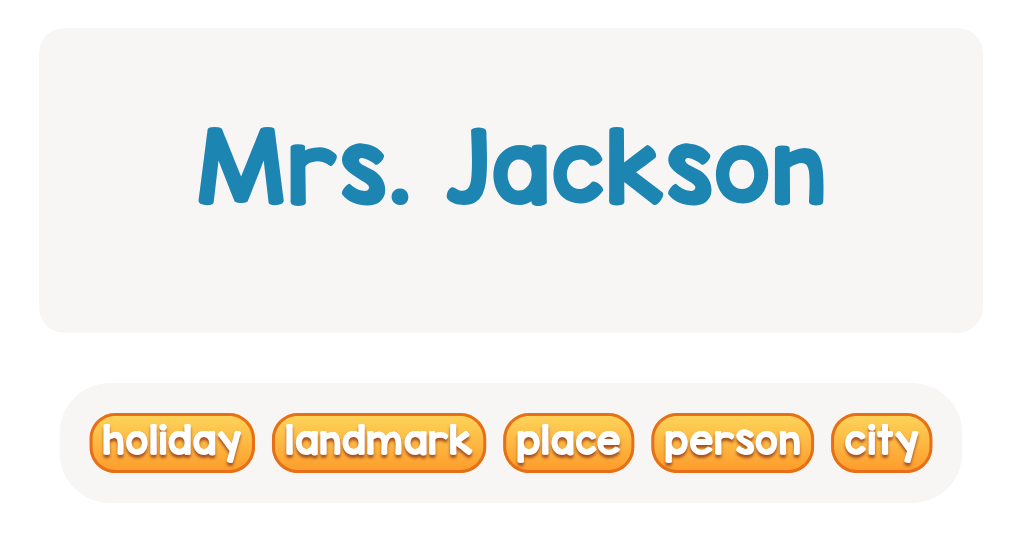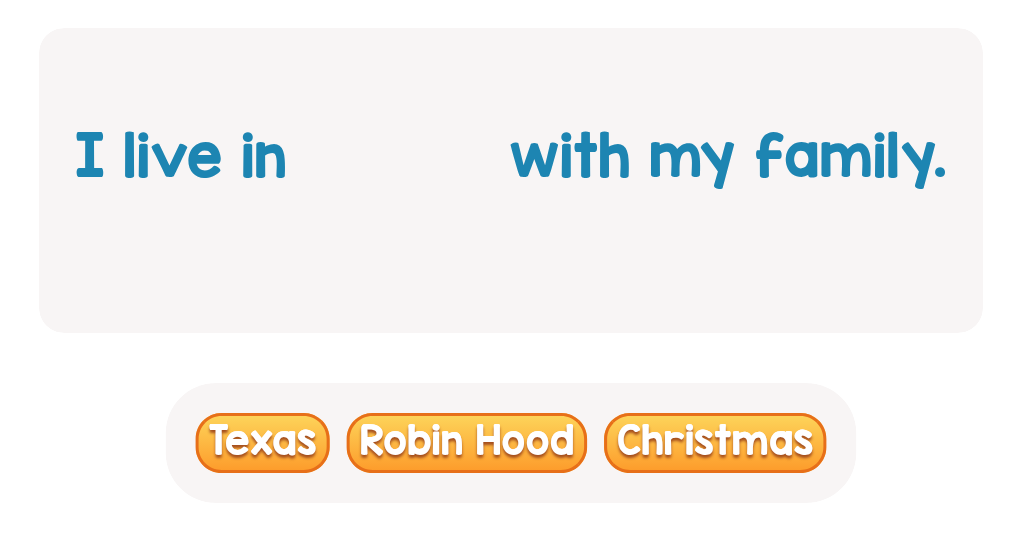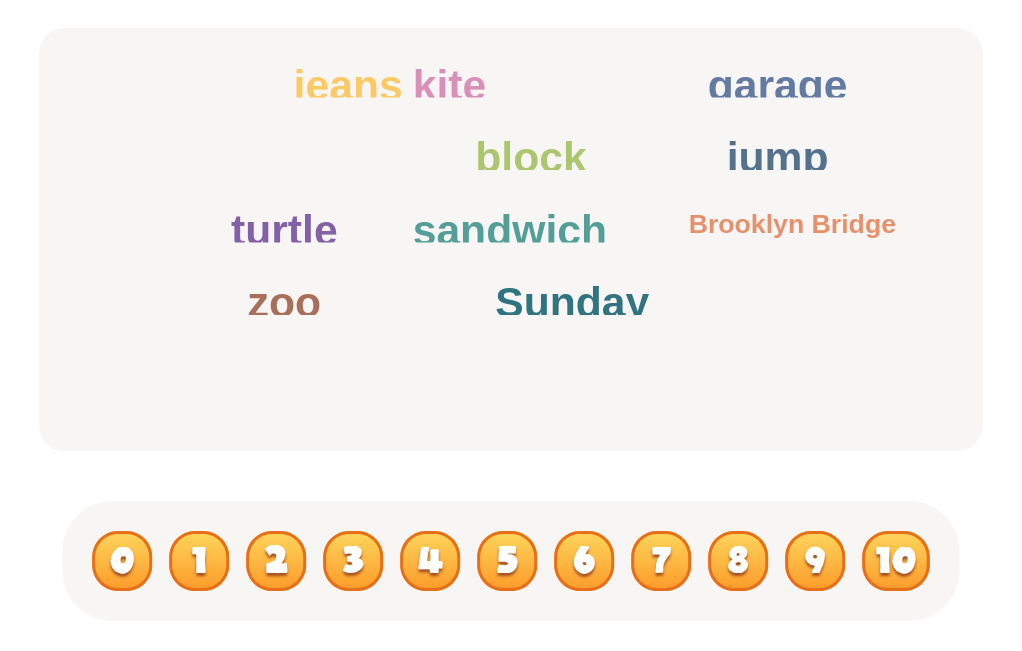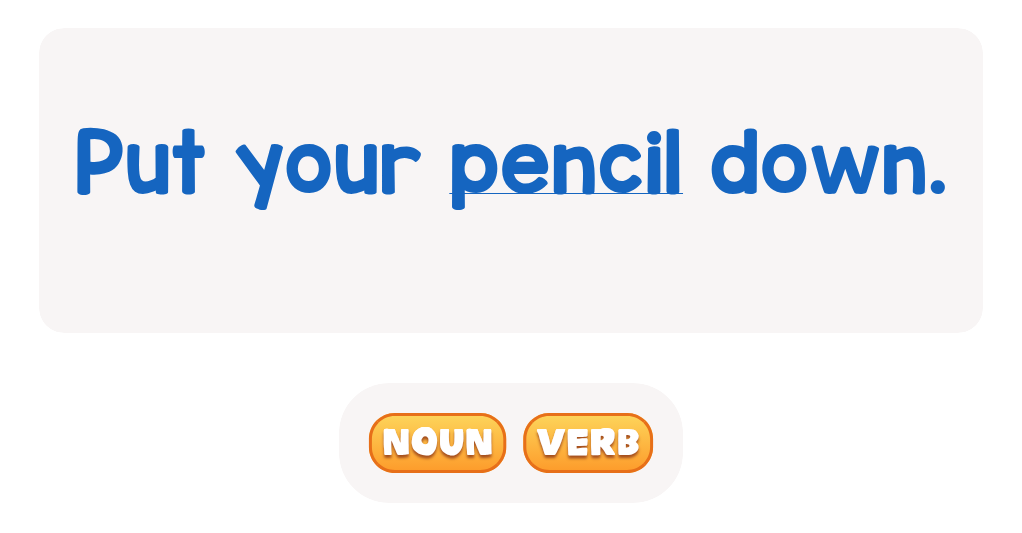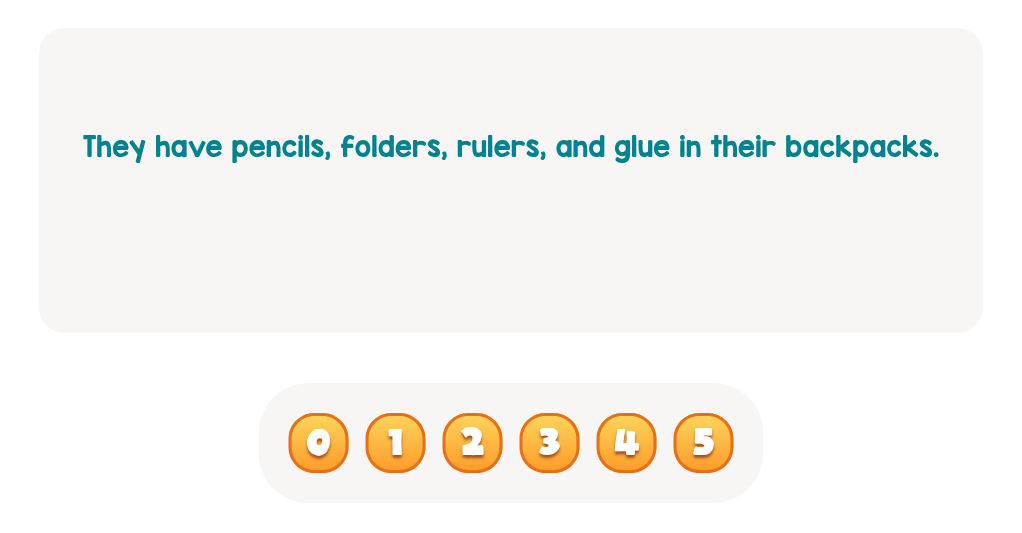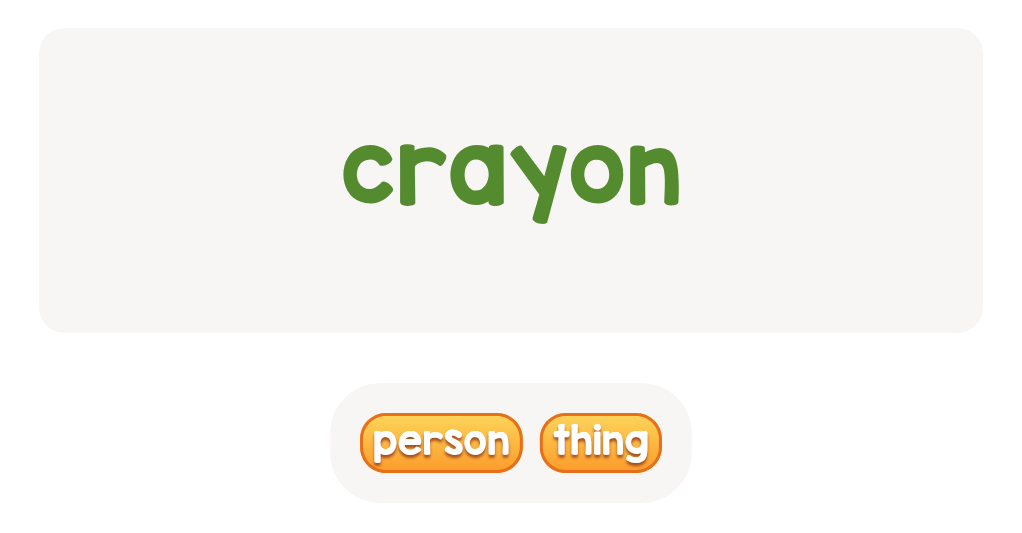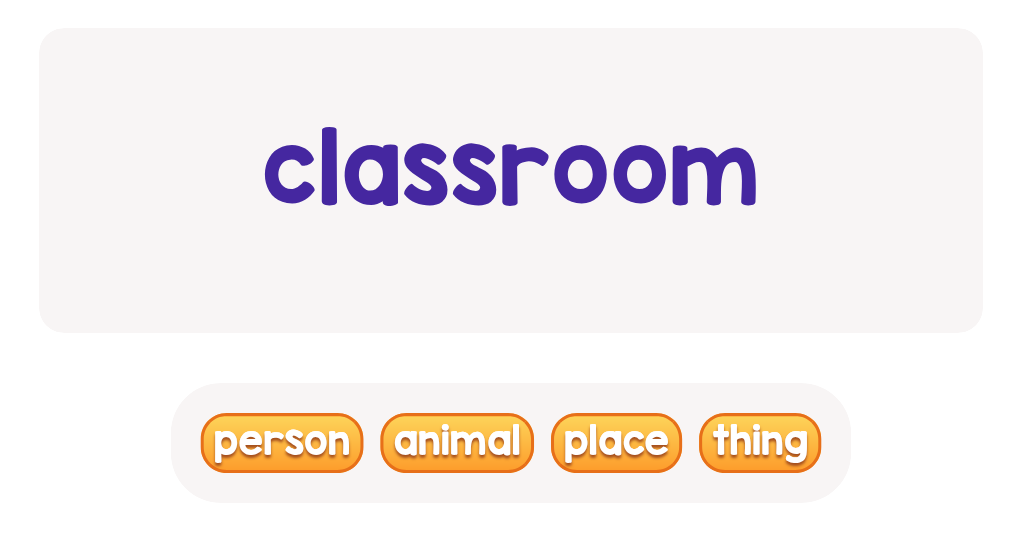Vowel Recognition Grammar Worksheets for Ages 5-8
4 filtered results
-
From - To
Enhance your child's phonetic skills with our Vowel Recognition Grammar Worksheets designed for ages 5-8. These engaging, educational activities help young learners identify and differentiate vowels through interactive exercises and fun-filled tasks. Each worksheet is crafted to boost reading and writing proficiency by focusing on vowel sounds within words and sentences. Perfect for home or classroom use, our worksheets aim to foster a strong foundation in early literacy. Encourage your child's academic growth and build their confidence with our expertly designed materials, making vowel recognition an enjoyable and rewarding experience!


Short Vowels /e/, /i/, and /u/ Worksheet


Long Vowel Maze /o/ and /i/ Worksheet
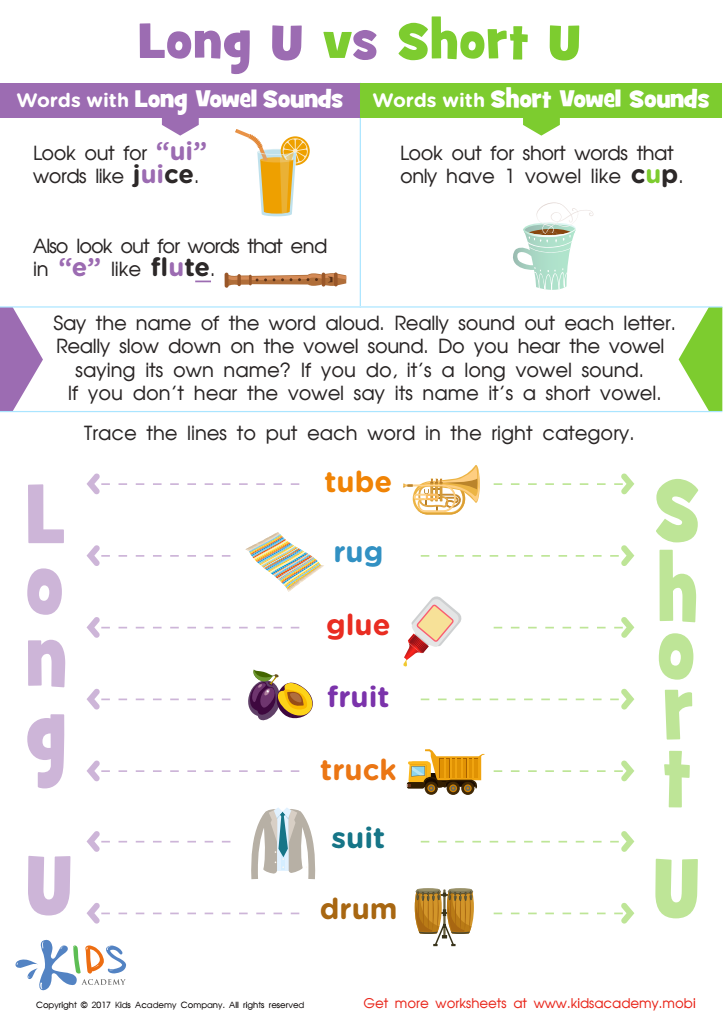

Long and Short Vowel U Spelling Worksheet
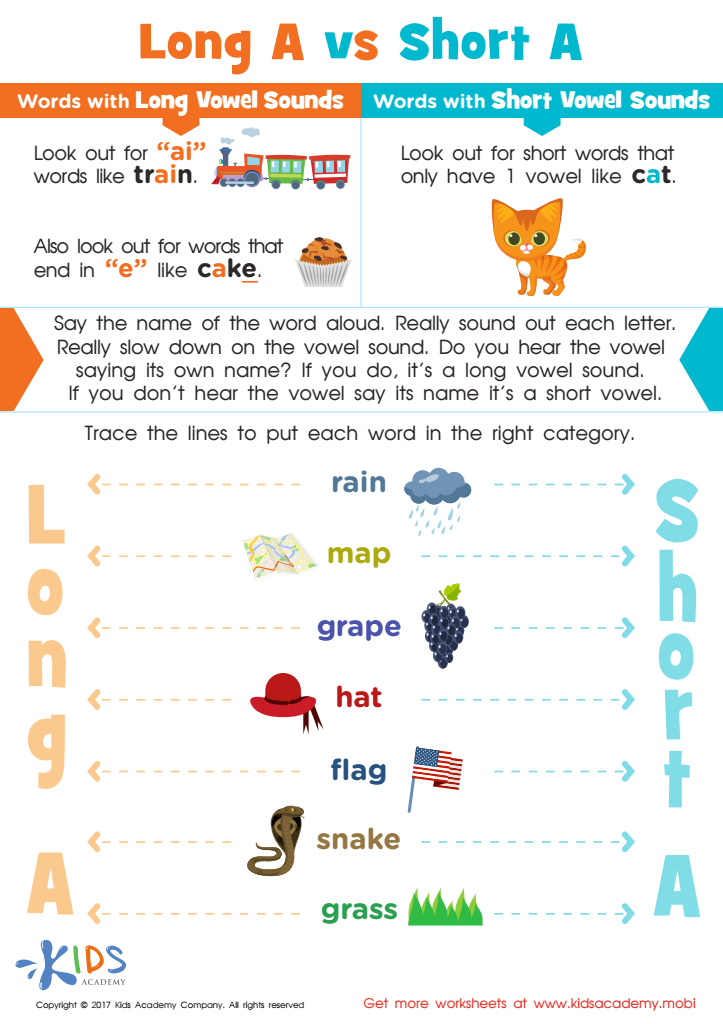

Long and Short Vowel A Spelling Worksheet
Vowel recognition is a cornerstone of early literacy development for children ages 5-8. During this period, children transition from recognizing letters to decoding words, a skill crucial for reading and writing fluency. Mastery of vowel sounds significantly facilitates this transition.
Firstly, vowels are present in every English word, so understanding them is essential for word construction. Clear recognition of vowel sounds helps children decode unfamiliar words more quickly, improving reading fluency and confidence. Furthermore, accurate vowel usage is key for proper spelling and phonemic awareness. Children who grasp vowel sounds can segment words more effectively, understanding the essential concept that words are composed of smaller sound units, which enhances their ability to spell correctly.
Secondly, strong vowel recognition skills contribute to reading comprehension. When children can fluently read and decode words through their understanding of vowel sounds, they can focus more on grasping the meaning of the text rather than struggling with word recognition. This boosts both their enjoyment and overall literacy levels.
Lastly, effective vowel recognition learning fosters a positive feedback loop; as children experience success in reading and writing through their phonemic skills, they are more likely to engage in literacy activities, promoting ongoing development. Therefore, parents and teachers should prioritize vowel recognition to build a strong foundation for a child's linguistic future.
 Assign to My Students
Assign to My Students
